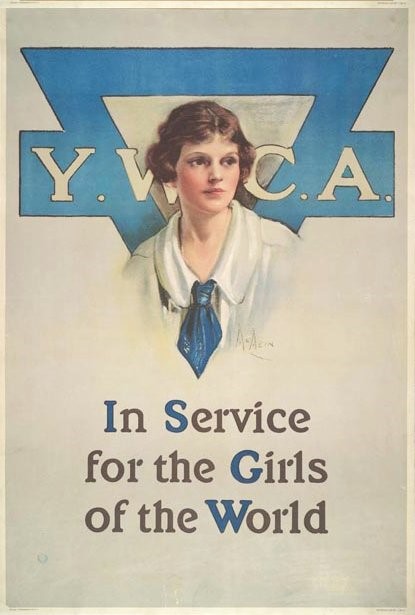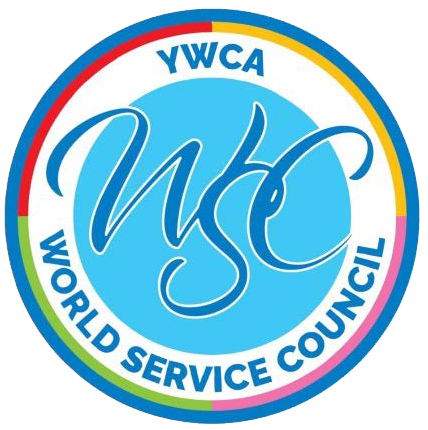History
In 1894, the YWCA USA helped establish the World YWCA along with Great Britain, Sweden and Norway. Early in YWCA USA history there was active engagement by the USA in activities and programs of the World YWCA. In 1917 President Woodrow Wilson asked the YWCA USA to create a War Council to help re-establish YWCAs in Europe that had been devastated by the war. It was founded by Mrs. John D. Rockefeller, Jr. and Mrs. Stewart Cushman in 1917. Between 1917 and 1920, the WSC raised large sums of money, which continued after World War I, supporting wartime services and providing financial support toward restoring and establishing YWCAs in 17 countries.
 After that initial focus, the World Service Council was officially organized “to spread interest in the work that the YWCA was doing in other countries, and to discover and secure special gifts from individuals toward financing these programs.” Seven founding members traveled in a private railroad car from Maine to California, recruiting 100 members, who each contributed $5,000. The WSC became the philanthropic arm of the YWCA USA for the World YWCA.
After that initial focus, the World Service Council was officially organized “to spread interest in the work that the YWCA was doing in other countries, and to discover and secure special gifts from individuals toward financing these programs.” Seven founding members traveled in a private railroad car from Maine to California, recruiting 100 members, who each contributed $5,000. The WSC became the philanthropic arm of the YWCA USA for the World YWCA.
Many World Service Council members have played huge volunteer roles in the history of the movement. In fact, more than a third are former national board members or former national staff. Thus, WSC helps keep former YWCA members engaged and provides a way for them to express their loyalty to the YWCA movement. Since the YWCA USA has restructured during 2015-16, the WSC has been collaborating with the YWCA for greater support of the global YWCA. Currently, seven WSC members serve on the Global Relations Committee which is a standing committee of the YWCA USA. As a Council to the YWCA through the Global Relations Committee, the WSC works to assure annual grants are made to the World YWCA from money raised by the WSC, and works with the YWCA USA to identify potential additional funds for our global work.
During its 95-year history, the WSC has worked with the World YWCA and the International Building Fund to provide capital funds to YWCAs in more than 70 countries. The WSC has also actively helped finance yearly educational programs around the world especially those focused on the training of young women for service and leadership. Funds from the WSC have also gone to the revitalization and creation of YWCAs in developing areas of the world, such as in several countries of the former Soviet Union. Also, over the past ten years the WSC has provided the World YWCA with financial support to respond quickly to emergencies in areas where YWCAs have been affected by natural disasters or conflict. Such funds have been used in the Philippines, Haiti, the Sudan, Zimbabwe, and most recently in Nepal to name just a few.
The WSC has also been increasingly involved in active and official service at the United Nations for the World YWCA. Several of its leaders have been registered World YWCA representatives at the United Nations for decades where they continue the YWCA’s role as a leading NGO, and have supported the UN, UNICEF, and CSW on women’s issues since the 1940s. YWCA leaders such as Mildred Persinger, Nita Barrow of Barbados and Elizabeth Palmer played major roles in initiating three UN World Conferences for women in 1975, ‘85, and ‘95.
Current members seek to increase the number of members, friends and interested contributors who support the work of the YWCA USA and the World YWCA. Its members are deeply committed to the ongoing mission of the YWCA, giving annually as generously as possible and securing gifts from others.
Investing in women is investing in development. Investing in development is investing in peace, a World Service Council priority.
Today, the YWCA, at work in 120 countries, is the oldest and largest women’s membership organization in the world. For more than 150 years, the YWCA has worked to elevate the status and improve the lives of women and girls, and continues to be a vital force in the creation of understanding and cooperation worldwide.
